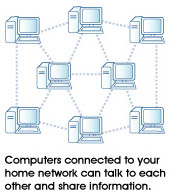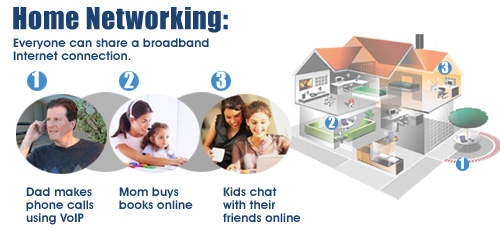Why Network for your office or home?
A network is a group of desktop or laptop computers (and other hardware devices, such as printers) that is connected together with the primary purpose of communicating and exchanging data. Networking is all about sharing, and it allows your computers to connect to the Internet, talk to each other, and share resources like files and printers.
Benefits of Computer Networking
Networking adds a lot of flexibility in the way you work and spend time with your computers and electronic devices. With a network, you can:
- Share a high-speed, broadband cable Internet connection so everyone can surf the web simultaneously
- Access your own private e-mail account while others cruise the web
- Share all types of files, including music, digital pictures, and documents
- Store your library of music, pictures, and files all in one place
- View your digital pictures and listen to your music anywhere in the house
- Secure your computers against Internet threats, like viruses and worms
- Enjoy gaming over the Internet with someone anywhere in the world
- Save money and time by sharing printers, scanners and other peripherals
- Share storage space and access files on another computer through your LAN
(local area network) when your hard drive is full. Learn more about LAN & WAN.

